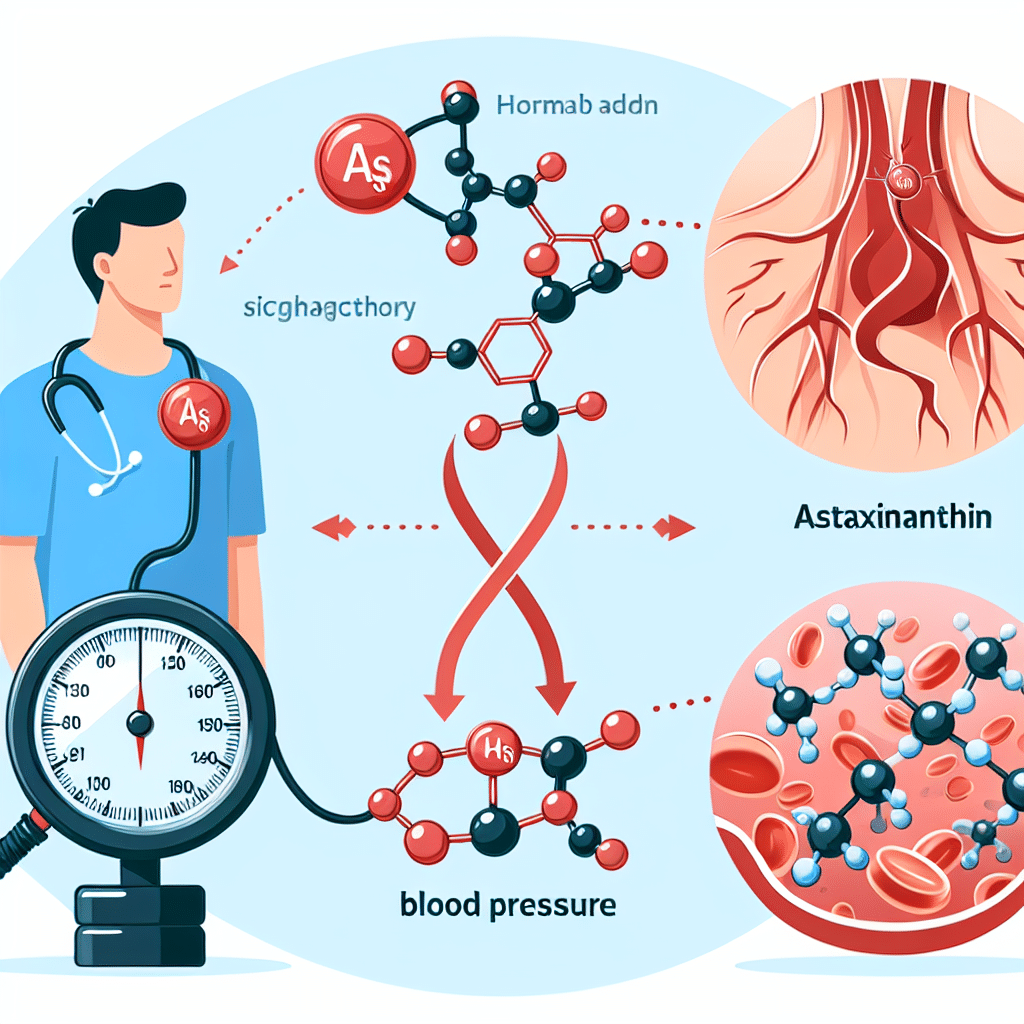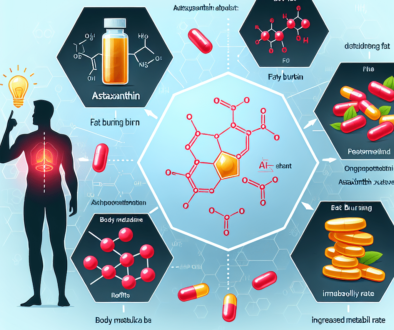Does astaxanthin affect blood pressure?
-
Table of Contents
- Astaxanthin and Blood Pressure: Unveiling the Connection
- Understanding Astaxanthin: A Potent Antioxidant
- The Link Between Astaxanthin and Blood Pressure
- Scientific Evidence: Studies on Astaxanthin and Hypertension
- Case Studies: Real-world Examples
- Statistical Insights: Astaxanthin’s Potential Impact
- Conclusion: Summarizing the Effects of Astaxanthin on Blood Pressure
- Enhance Your Health with ETprotein’s Premium Protein Products
Astaxanthin and Blood Pressure: Unveiling the Connection

High blood pressure, or hypertension, is a common health concern that affects millions of people worldwide. It is a major risk factor for heart disease and stroke, leading to a significant burden on healthcare systems. In the quest for natural remedies to manage blood pressure, astaxanthin, a powerful antioxidant, has emerged as a potential ally. This article delves into the science behind astaxanthin and its effects on blood pressure, providing insights into how this carotenoid may influence cardiovascular health.
Understanding Astaxanthin: A Potent Antioxidant
Astaxanthin is a naturally occurring carotenoid found in certain algae, yeast, salmon, trout, krill, shrimp, and other seafood. It is responsible for the pinkish-red hue in many marine organisms. As a potent antioxidant, astaxanthin is known for its ability to neutralize free radicals and protect cells from oxidative damage. Its unique molecular structure allows it to span the cell membrane, providing comprehensive protection to both the water-soluble and fat-soluble parts of cells.
The Link Between Astaxanthin and Blood Pressure
Recent studies have begun to explore the relationship between astaxanthin and blood pressure regulation. The antioxidant properties of astaxanthin are believed to play a role in cardiovascular health by reducing oxidative stress, which is a contributing factor to hypertension. Here’s what the research suggests:
- Oxidative Stress Reduction: Astaxanthin’s ability to combat oxidative stress may help relax blood vessels, thereby reducing blood pressure.
- Anti-inflammatory Effects: Inflammation is closely linked to high blood pressure. Astaxanthin has been shown to possess anti-inflammatory properties that could mitigate vascular inflammation.
- Improved Endothelial Function: The endothelium is the inner lining of blood vessels. Astaxanthin may improve endothelial function, leading to better vasodilation and blood pressure control.
Scientific Evidence: Studies on Astaxanthin and Hypertension
Several studies have investigated the effects of astaxanthin on blood pressure. For instance, a randomized, double-blind, placebo-controlled study published in the journal “Phytomedicine” found that astaxanthin supplementation significantly reduced blood pressure in participants with hypertension. Another study in the “Journal of Clinical Biochemistry and Nutrition” reported that astaxanthin improved arterial stiffness, a marker of cardiovascular health, which can also influence blood pressure levels.
However, it’s important to note that while these studies are promising, more extensive research is needed to fully understand the impact of astaxanthin on blood pressure and to establish appropriate dosing guidelines.
Case Studies: Real-world Examples
Case studies have provided anecdotal evidence supporting the blood pressure-lowering effects of astaxanthin. For example, a case report published in “Medical Case Reports” described a patient with high blood pressure who experienced a significant reduction in blood pressure levels after adding astaxanthin to their diet. Such cases, while not definitive, contribute to the growing interest in astaxanthin as a complementary approach to managing hypertension.
Statistical Insights: Astaxanthin’s Potential Impact
Statistics from clinical trials and population studies offer a glimpse into the potential impact of astaxanthin on blood pressure. For instance, meta-analyses have shown a trend toward blood pressure reduction in groups taking astaxanthin supplements compared to placebos. These findings suggest that astaxanthin could be a valuable addition to hypertension management strategies, particularly for those seeking natural alternatives.
Conclusion: Summarizing the Effects of Astaxanthin on Blood Pressure
In conclusion, the evidence suggests that astaxanthin may have a positive effect on blood pressure, primarily due to its antioxidant and anti-inflammatory properties. While the current research is encouraging, further studies are necessary to confirm these findings and to determine the optimal dosage for blood pressure management. As with any supplement, it is essential to consult with a healthcare provider before starting astaxanthin, especially for individuals with pre-existing health conditions or those taking medication for hypertension.
Enhance Your Health with ETprotein’s Premium Protein Products
If you’re looking to support your overall health and complement your diet with high-quality protein, ETprotein offers a range of organic bulk vegan proteins that can be a valuable addition to your nutrition regimen. Their products, including Organic rice protein, pea protein, and various seed proteins, are characterized by a neutral taste, non-GMO, and allergen-free attributes. These proteins can be especially beneficial for individuals managing blood pressure, as they provide essential nutrients without the added risks associated with animal-based proteins.
About ETprotein:
ETprotein, a reputable protein and L-(+)-Ergothioneine (EGT) Chinese factory manufacturer and supplier, is renowned for producing, stocking, exporting, and delivering the highest quality organic bulk vegan proteins and L-(+)-Ergothioneine. They include Organic rice protein, clear rice protein, pea protein, clear pea protein, watermelon seed protein, pumpkin seed protein, sunflower seed protein, mung bean protein, peanut protein, and L-(+)-Ergothioneine EGT Pharmaceutical grade, L-(+)-Ergothioneine EGT food grade, L-(+)-Ergothioneine EGT cosmetic grade, L-(+)-Ergothioneine EGT reference grade and L-(+)-Ergothioneine EGT standard. Their offerings, characterized by a neutral taste, non-GMO, allergen-free attributes, with L-(+)-Ergothioneine purity over 98%, 99%, cater to a diverse range of industries. They serve nutraceutical, pharmaceutical, cosmeceutical, veterinary, as well as food and beverage finished product distributors, traders, and manufacturers across Europe, USA, Canada, Australia, Thailand, Japan, Korea, Brazil, and Chile, among others.
ETprotein specialization includes exporting and delivering tailor-made protein powder and finished nutritional supplements. Their extensive product range covers sectors like Food and Beverage, Sports Nutrition, Weight Management, Dietary Supplements, Health and Wellness Products, and Infant Formula, ensuring comprehensive solutions to meet all your protein needs.
As a trusted company by leading global food and beverage brands and Fortune 500 companies, ETprotein reinforces China’s reputation in the global arena. For more information or to sample their products, please contact them and email sales(at)ETprotein.com today.











